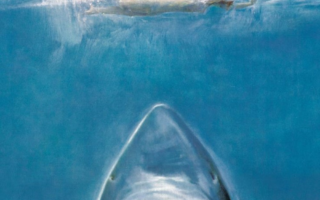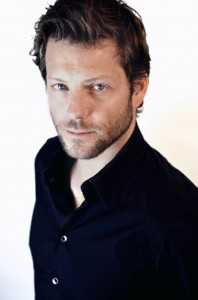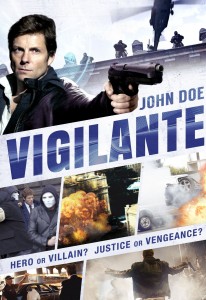John Doe is a singer, songwriter, poet and actor. He is probably best known for his work with the seminal Los Angeles punk band X which formed in the mid 1970’s. 2016 has been a busy for year for Doe as earlier this year he released his first solo album in five years titled “The Westerner” along with a book chronicling the L.A. punk scene titled “Under the Big Black Sun”. Media Mikes had the chance to talk with John recently before his performance in Ithaca, NY about the idea behind his new album and what it was like revisiting the stories contained in his book.
Adam Lawton: Can you give us some background on the new album “The Westerner”?
John Doe: My friend Michael Blake who wrote “Dances with Wolves” and several other books was like a brother to me. He was diagnosed with Alzheimer’s and over time couldn’t remember anything. It bugged the hell out of him but we remained close through everything and I would always go up and visit him. We influenced each other a lot in art and writing. Howe Gelb and I were reconnecting around the same as I was writing songs about Michael and using him as a character. I like what Howe has done with different peoples sound as well as his own in Giant Sand. He has really refocused the sound coming out of the Tucson area. I wanted the songs to have space and reverb so working down there seemed like the natural way to go. I had the title “The Westerner” sort in my mind as someone sent me a Doors record. The Doors were also Michaels favorite band so I began looking up stuff on them and my connection with that band goes way back. I was searching the internet and found an image done for one of their record store day releases. Shepard Fairey is the artist who did the piece and he and I have been friends for some time so I asked if he would redo the piece for me and he said yes. The original photo was shot at the Rose Bud Reservation by Aaron Huey who has an organization called “Protect the Sacred”. This was one of Michael’s main charities so it was great to be able to tie all this stuff in with the album. The album is a tribute album but it’s not sad.
AL: Was the idea to do a new solo album already in your thoughts prior to Michael becoming ill?
JD: Everything happened very organically. These days I sort of sit back and look at my watch and say “Holy shit it’s been 4 years since I made a new record” (Laughs). I always am writing bits and pieces of things but it just so happened that Michael was on my mind and I started to see how things were happening and I began tailoring things with what was going on. I loved the song Exene wrote called “Alone in Arizona”. It seemed to be kind of about Michael even though it really wasn’t. I am a big fan of Chan Marshall especially her albums “The Greatest” and “Sun”. I started doing the song “A Little Help” and realized it was similar to “The Greatest” and asked Chan if she would sing on it with me. With the song “Go Baby Go” I reached out to Debbie Harry as X had toured with Blondie and I had asked her before that if I ever had something I thought she would be good for would she do it. That song is a fun rock song and it worked out great. I am very fortunate that I am still around and that people want to come and play.
AL: Having been in the music industry for some time now aside from digitalization and the internet what has been the most notable change?
JD: MTV was really big when it first came out. All the other stuff out there I don’t really concern myself with. I have Instagram and my manager does Facebook so I have a small to moderate presence with social media but if people really want to see me then I think they should come out to show as I am generally hanging around. There is so much great music out there these days that it’s hard to rise above the static. Think of the old music business like an hour glass. You had the music at the top, at the pinching point was the business at the bottom was the public. Over time the shape of the industry changes to where now it’s square. There is just so much stuff flooding people ears these days.
AL: What can you tell us about your new book “Under the Big Black Sun”?
JD: Tom DeSavia who is the co-author and my sweet heart were both telling me that I should write a book. I thought it was going to be just too much work so I didn’t really pay attention to them. One day I had this brilliant idea about how the scene in L.A. was about community and collaboration. With that I knew that I wouldn’t have to write this book all by myself or suffer the pain if people didn’t like it I could just blame it on somebody else. (Laughs) I didn’t have to be the authority on things. I liked book such as “Please Kill Me” and “We Got the Neutron Bomb” however there is not a lot of fact checking that goes into oral histories. Los Angeles was sort of a romantic place in that era so I thought it was important to have it be its own character. I really feel that everything that is Los Angeles from the weather to the cars affected the way the music sounded. After Tom and I decided to do it we got a book deal and things became real. We got paid a pretty good advance and then we knew we really had to go through with it. We started getting people together and selecting topics based on what was important to that scene and what would make people care. The big one was it was that what happened was a cultural revolution. That was Exene’s big part of the book. Dave Alvin was part of the roots scene which got pulled into punk rock so he is the expert there so, that’s where he tells his story from. Robert Lopez was in a Latino band called The Zeroes. He was not out at this time but he was obviously gay so he was able to talk about that aspect of things. Jane Wiedlin talks about where people lived and how that played a role. By doing things this way we were able to give the book a much broader perspective.
AL: The book shines a light on the L.A. punk scene as it was/is often overshadowed by what was going on in New York and London around the same time. Can you tell us a little about that?
JD: I think at some point the media picked up on The Sex Pistols and few other bands that were young and/or un-experienced who said “Fuck You”. The media then said “Ok, Fuck you” which caused them to not cover things as much. When the L.A. scene finally came around about a year and a half later they possibly had enough images and maybe had made up their mind that we weren’t going to play ball. I think bands like Blondie, Talking Heads and The Ramones just wanted to be part of music and have a career. That’s what we wanted also. It wasn’t until the hardcore scene that people felt like they had been abandoned leading to bands doing things on their own. That’s when labels like SST started popping up. Everyone had sort of a chip on their shoulder and over time L.A. punk has started to carve out its own niche which has been good. Twenty or thirty years ago I would have probably been pretty bent out of shape about how the L.A. scene was looked upon but these days I couldn’t care less.
AL: Was there a present rivalry between the two coasts/scenes because of this?
JD: Sure. I think there was a healthy rivalry between New York and L.A. and L.A. and San Francisco but it wasn’t anything to wild. I do remember Exene getting into a fight with Handsome Dick from The Dictators once. (Laughs) What we loved about the whole thing was that almost all of those bands came out to Los Angeles to play at The Whiskey. We saw The Ramones, Blondie, The Damned, Television and a few others who played out our way regularly.
AL: What was it like for X when they would travel to the east coast?
JD: It was rough at first. Exene’s sister got us three shows in NYC in 1978 after we put out our first single. We basically drove from L.A. to New York with all of our gear, played three shows and then drove home. There is a little of that in the book but it was sort of a lukewarm reception. Debbie Harry and Chris Stein came to the shows at Studio 57 and later on we got to be pals with The Ramones. It took a little while because everyone thought L.A. was just swimming pools and Farrah Fawcett. You weren’t just given a Mercedes when you moved there. It was a pretty hard scramble. It was cheap to live there at the time though so there were a lot of young people with nothing to do but create stuff.
AL: What was it like revisiting a lot of the memories from that time period, especially the ones around the time of the death of Exene’s sister?
JD: That specific event wasn’t hard to dig into as I had experienced it so deeply in the beginning. It changed everything for Exene and by relation me too. It wasn’t too hard to look back. I don’t necessarily wish I had kept diaries or anything. It might have been good? You sort of start channeling towards a certain direction and things start to come back. I think it’s all about the details. I worked with everyone who wrote for the book and I always asked for more details. I think everyone was happy to tell their story and I was surprised by quite a few of them.
AL: With your current solo tour coming to end do you have planned for the coming year?
JD: The fortieth anniversary of X is coming up next year. We have the initial schedule which consists of around one hundred shows! Usually we do between thirty and fifty shows a year so this is quite a bit more. I think it’s great! Forty years ago we put a big investment into the bank of punk rock. At the time everyone though it was bullshit but we all have been able to make pretty good careers out of that initial investment. We are one of the few remaining punk bands from that time with its original members. Everyone is healthy now which is really great. We also will be looking to put out some live material and if Exene will write some more lyrics will put out some new songs as well. (Laughs)





